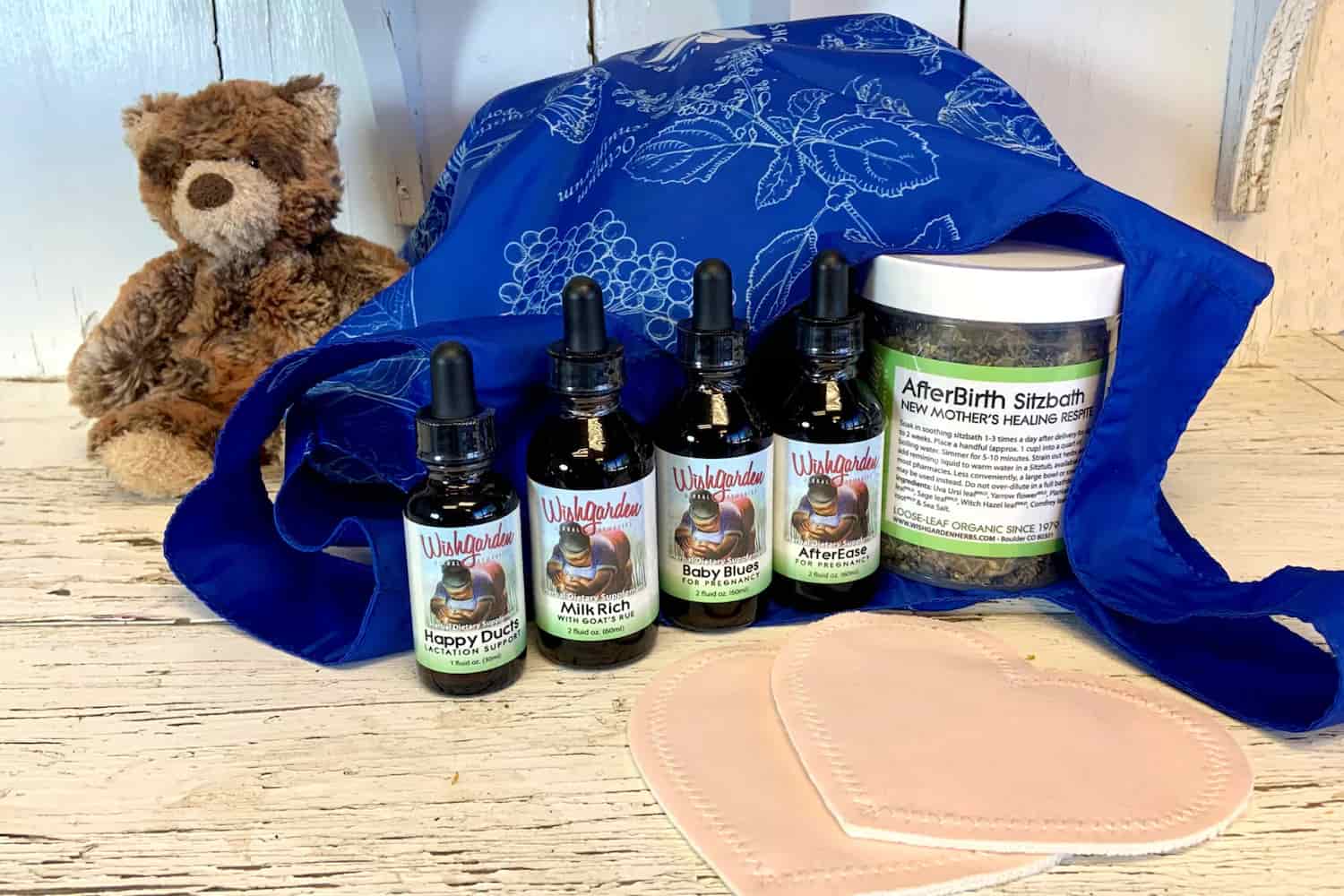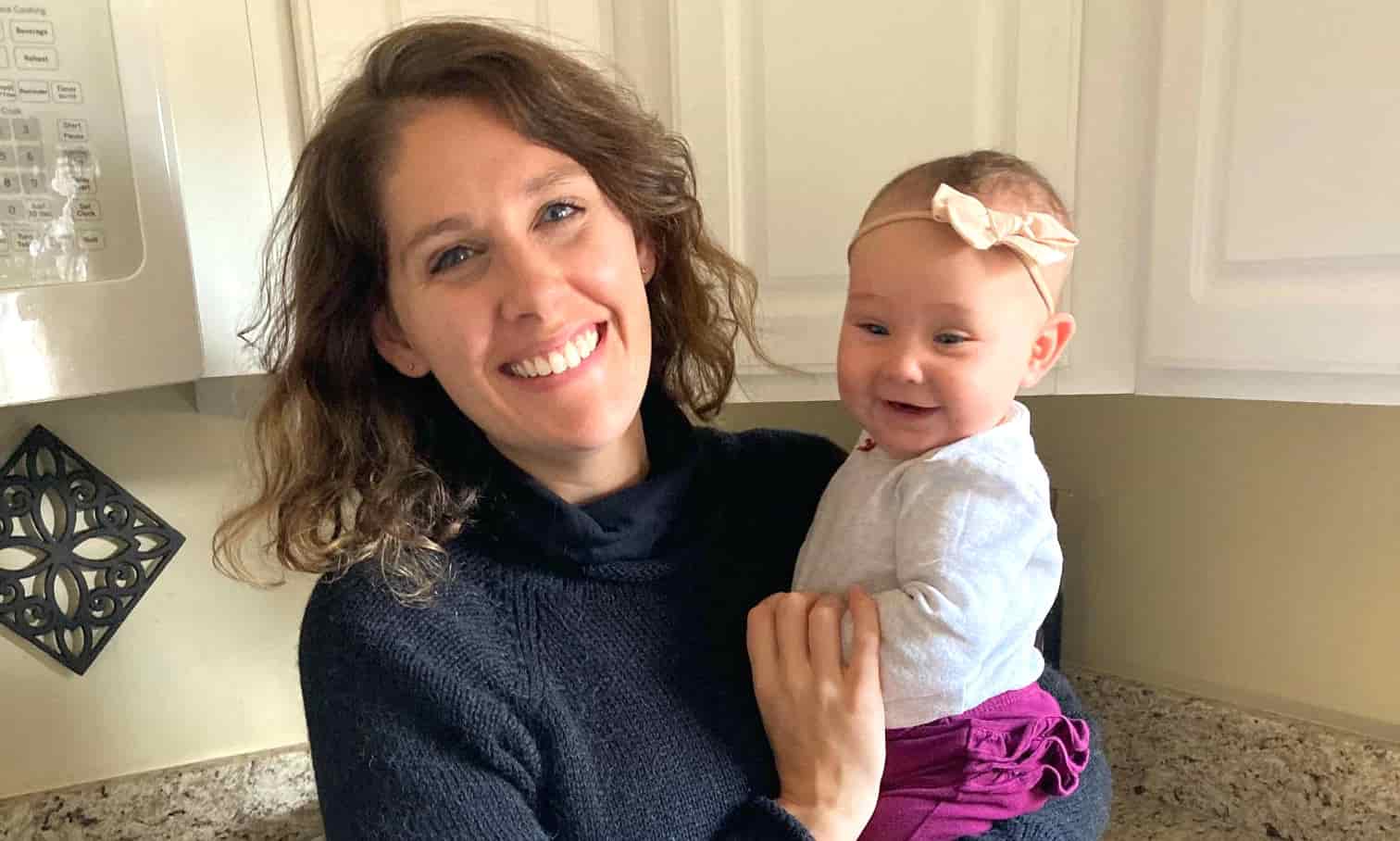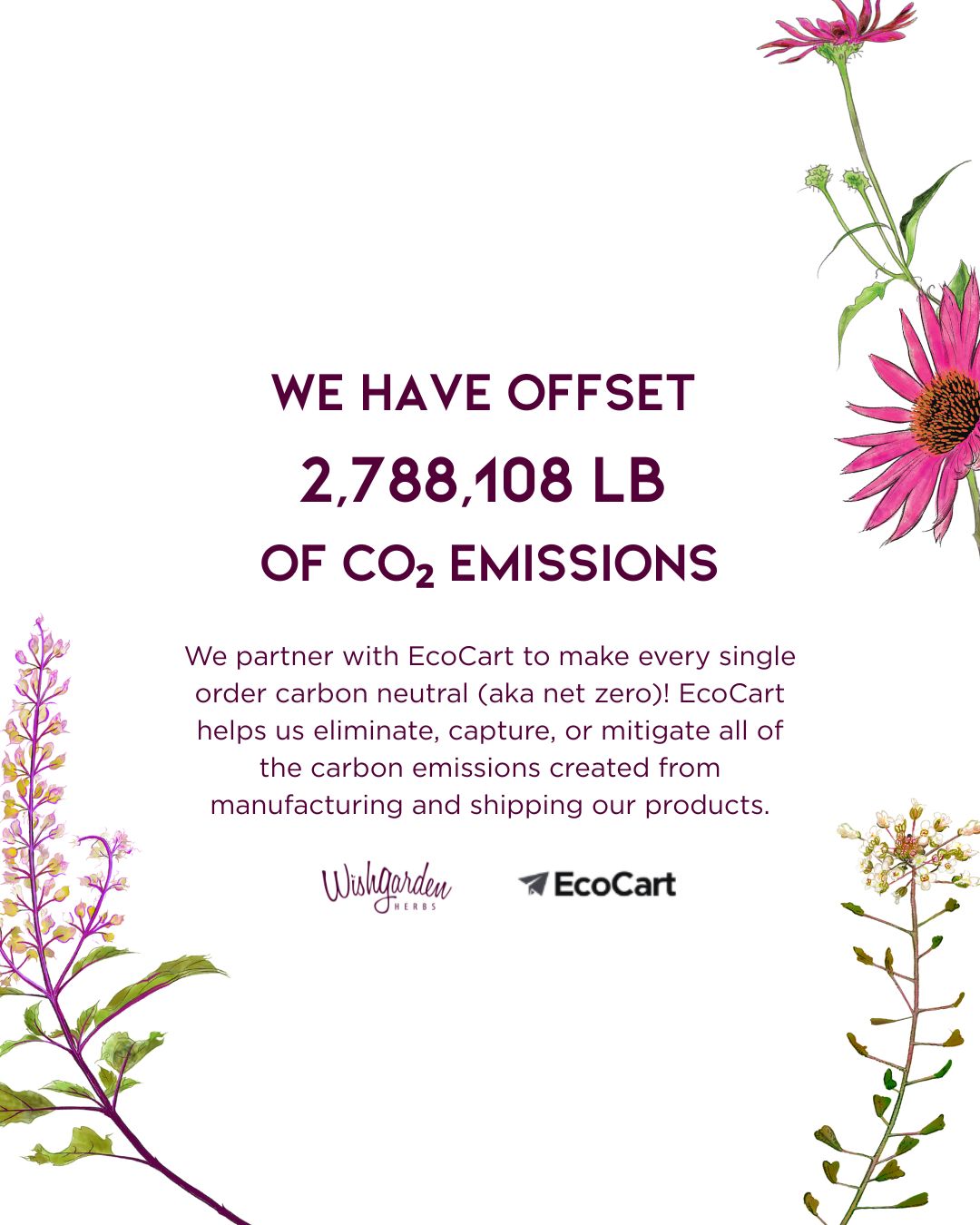
Postpartum Hormone Changes: Healing After Birth or Loss
Written by Rebecca Younger, CH, CDShare
Life after pregnancy can feel like entirely new terrain, mentally and physically. Whether you’re adjusting to life with a newborn, grieving a miscarriage, or navigating a tender pregnancy ending, you may be experiencing emotional shifts that feel heavy, isolating, or unexpected. Many women wonder, “What’s wrong with me?” but the truth is, nothing is wrong with you. It’s common to experience crying spells and mood swings during the postpartum period, especially in the first few weeks after birth. These emotional changes are a normal part of the postpartum experience. We experience natural physiological transitions during this time, and deserve gentle and effective postpartum support.
Healing isn’t linear and it's not a sprint. It's a series of small and consistent actions that are grounded and rooted in self care. It’s not about bouncing back quickly, but about working with the reality of what your body is going through, and giving yourself a ton of grace.
What’s Happening in Your Body After Pregnancy
The Estrogen & Progesterone Plummet
During pregnancy, the hormones estrogen and progesterone rise to support growth, mood, and sleep. When pregnancy ends, those levels drop sharply, falling by more than 90% within just 24 hours. This sharp drop is responsible for the mood swings and emotional uneasiness you may feel. These hormones are produced by the ovaries and regulated by the pituitary gland, which is responsible for hormones such as oxytocin and prolactin, both important for postpartum recovery. Such a sudden change often leads to emotional shifts, commonly called the baby blues. These may include unpredictable bouts of crying, irritability, fatigue, or low energy. Hot flashes can also occur due to these hormonal changes. It’s important to remember that this is a natural physiological response, not a personal flaw. In fact, it’s one of the many ways nature calls on the strength and resilience of femininity to shine.
Prolactin‘s Role (if nursing)
During the nursing stage, prolactin levels rise to support milk production. When women breastfeed, this not only maintains prolactin levels but also influences oxytocin, and the frequency and duration of breastfeeding can play a role in how quickly hormone levels stabilize. While these hormones help nurture bonding and connection, they can sometimes contribute to emotional sensitivity or feelings of fatigue. When women stop breastfeeding, hormonal fluctuations and emotional changes can occur as the body adjusts to lower prolactin levels and the weaning process.
Cortisol, Sleep, Stress & the Nervous System
Our bodies may stay in heightened stress mode during the postpartum stage, releasing adrenal hormones like cortisol and adrenaline. Coupled with sleep disruptions like nighttime feedings and baby’s cycles, difficulty getting consistent and restful sleep is common during the postpartum period and can leave us feeling wired, restless, and exhausted.
Thyroid Shifts & Energy Fluctuations
For some, the thyroid gland may adjust during the postpartum stage. These changes in thyroid function can lead to emotional symptoms such as mood disturbances or fatigue. That can affect how energetic we feel or how easily we rest and is another reason we feel off and not like ourselves during recovery.
Common Postpartum Conditions
The postpartum period brings a wide range of emotional and physical changes, and it’s important to recognize that every woman’s experience is unique. Understanding the symptoms of postpartum conditions can help you know when to seek help.
The “baby blues” are common and typically begin within the first few days after pregnancy/birth. They often resolve on their own within a few weeks. Symptoms may include tearfulness, mood swings, irritability, anxiousness, and trouble sleeping. And while unpleasant, these feelings are usually mild and temporary.
For some women, the baby blues may persist...
Postpartum depression is more serious and longer lasting. Unlike the baby blues, it does not fade with time and can begin anytime within the first year after a child's birth. Symptoms of postpartum depression may include persistent sadness or hopelessness, intense irritability or anger, overwhelming fatigue, loss of interest in activities, withdrawal from loved ones, difficulty bonding with the baby, and severe mood swings. It may also involve changes in appetite or sleep patterns that go beyond typical new-parent exhaustion. When these symptoms interfere with daily tasks, daily functioning, or persist beyond two weeks, it is important to seek help from a mental health provider for assessment and care.
Postpartum psychosis, though much rarer, is a more severe condition that can cause hallucinations, delusional thinking, confusion, or sudden and extreme mood changes. This condition requires immediate medical attention, as it can pose serious risks to both the mother and her baby.
Being aware of these differences can help you recognize when it is time to reach out for support. Untreated postpartum depression can have lasting effects, making it difficult to care for yourself and your baby or manage daily tasks. With help and the right treatment options, such as therapy or medication, recovery is absolutely possible. Remember, seeking support is a sign of strength, and you deserve compassionate care during this transformative time.
Why Many Women Feel Alone
Although the baby blues affect up to 85 percent of people after pregnancy, this is not something that is frequently talked about, and many women feel a stigma around discussing any difficulty they’re experiencing. It’s important to know that emotional challenges during the postpartum period are common and valid for anyone who has gone through birth or pregnancy. This can be especially true for first time parents, including both mothers and fathers, as they adjust to hormonal changes and the emotional shifts that follow the arrival of a new baby. Even with a strong support system of partners, family, or friends, it is still possible to feel profoundly isolated during this time.
The experience of loss, whether through miscarriage, pregnancy release, or other circumstances, is often met with silence, leaving many to navigate their grief or physical recovery alone. And even when a baby is welcomed into a loving home, cultural pressure to quickly bounce back can overshadow the deep internal shifts that are still occurring. Your body, hormones, and nervous system are adjusting after a major transition, and that process deserves time and care.
Supportive loved ones may want to help but not know how, and even the most well-intentioned partner might struggle to offer the kind of support that truly meets your needs. Many people in the postpartum period describe a sense of emotional confusion, fogginess, or the feeling of needing something intangible—“I need something, but I don’t know what it is.” Decision-making can feel overwhelming, and the simplest tasks may seem monumental. These feelings are not a sign of weakness or a lack of support. They are part of the real, layered experience of recovery and transformation that follows pregnancy.
Baby Steps Toward Balance
Gentle steps can create deep shifts. Here’s how to begin:
If you are experiencing postpartum blues, remember to find support from friends, family, or support groups. Reaching out can make a significant difference in coping with feelings of sadness and anxiousness after childbirth.
1. Nourish & Restore Your Body
- Warm Bath or Shower: Even a short wash can help the nervous system shift toward calm.
- Simple Hygiene Rituals: Brush your hair, wash your face, or change into clean clothes. These are small acts that can feel renewing.
- Sipping Broths & Herbal Teas: Nourishing broths and gentle teas support hydration, the digestive system, and postpartum well-being. These practices can also help support the body’s gradual return to pre-pregnancy health and energy levels. The mother's postpartum recovery and hormonal changes can also influence the baby's well-being and development, as the baby's early needs are closely linked to the mother's physical and emotional state.
2. Get Grounded with Fresh Air
Short walks, sitting in the sun, or opening a window can reconnect you with the larger world and offer a fresh perspective when emotional overwhelm feels heavy.
3. Connect with Those Who Understand
- Reach Out to Loved Ones: A non-judgmental friend who listens can help lighten emotional load, especially someone who has been through a similar journey.
- Join Group Support: Online or local postpartum groups offer validation and connection during a time when you may feel most isolated. New fathers can also benefit from support groups, as they may experience emotional changes after the birth of a child.
4. Honor Rest & Self-Compassion
Some days, you may just need to rest, and that is not only okay, it is essential. Rest is not a sign of laziness; it is a vital part of healing during the postpartum period. For many, especially single mothers or those without consistent support, rest can feel out of reach. When you are the only one caring for your baby, even the idea of lying down may seem impossible.
If you can, reach out to a trusted loved one or friend to watch your newborn for a couple of hours, or ask someone to help with simple household tasks like laundry, dishes, or preparing a meal. Even a short break can make a meaningful difference. Rest is not a luxury. It is a necessary part of caring for yourself, and in turn, caring for your baby. Giving yourself permission to slow down is one of the most compassionate things you can do during this time of recovery and transformation.
Herbal Allies Designed for Postpartum Balance
WishGarden Herbs offers gentle, nursing-safe blends thoughtfully crafted for the unique physical and emotional shifts of the postpartum period, including the hormone changes your body experiences in the weeks after birth as it works to return hormone levels to pre-pregnancy balance.
Postpartum Emotional Baby Blues — Designed for in-the-moment relief, this formula is ideal for most anyone needing situational emotional support during the postpartum transition. Whether you’re experiencing a wave of sadness, irritability, or overwhelm, the calming and nervine herbs help settle the nervous system, promote steadiness, and gently lift the mood. It can be taken as needed and is safe for short-term or occasional use throughout the postpartum period.
ReBalance Postpartum Emotional — A restorative tonic for longer-term support, ReBalance helps the body’s natural hormone recovery after pregnancy and birth. This blend is especially helpful if you’re still experiencing hormonal or emotional challenges a few weeks postpartum, or if you have a history of emotional struggles after pregnancy. Liver-nourishing herbs aid in processing and clearing excess hormones, while cycle-balancing botanicals support a smooth return to a healthy menstrual rhythm. Many find it helpful to take ReBalance for several weeks to a few months, depending on individual needs and with guidance from a trusted healthcare provider.
Both blends work with your body’s natural rhythms and feature botanicals such as motherwort, for emotional grounding and heart health; vitex, traditionally used to balance hormones; and burdock, known for supporting liver function, healthy hormone metabolism, and overall vitality. Together, they offer a flexible, supportive toolkit for navigating the emotional and physical landscape of postpartum recovery.
When to Seek Additional Support
If what usually feels good starts to feel overwhelming or emotional heaviness takes over beyond a few weeks, it’s time to reach out for more care. Not because you failed, but because this period may require professional guidance. Some women have an increased risk of postpartum depression, especially if they have a history of depression or emotional issues. The risk increases for those who have experienced postpartum depression after a previous child’s birth. Consulting with perinatal mental health specialists or accessing perinatal mental health resources can provide targeted support during this time.
Look for:
- Difficulty completing basic routines.
- Persistent emotional sensitivity or detachment.
- Ongoing fatigue or inability to rest.
- Both mothers and fathers can experience postpartum depression after a child’s birth.
Helpful Resources Include:
- Postpartum Support International (PSI): Offers free, confidential helpline and online circles at postpartum.net — a trusted resource for postpartum emotional support.
- SAMHSA Helpline: Call 1-800-662-HELP for 24/7 counseling and referrals.
Seeking help is an act of strength and a meaningful part of your postpartum recovery process.
A Community of Understanding and Care
WishGarden began as a midwifery company, handcrafting herbal formulas to support women through one of life’s most powerful and transformative experiences: birth. While we have since expanded our product line to serve a wide range of needs, our hearts remain deeply rooted in the birthing community. We stand with women, honoring their strength through the intense physical, emotional, and hormonal shifts that come with birth and beyond.
For decades, we have blended herbal wisdom with integrity and education to nurture women through postpartum transitions, grief, and hormonal recovery. Our work is always grounded in empathy, safety, and knowledge.
Building Resilience
Navigating the postpartum period means adapting to significant changes, hormonal shifts, emotional highs and lows, and physical adjustments. Building resilience can help postpartum women manage these transitions and find steadier ground after giving birth.
Start by prioritizing self-care: nourish your body with healthy foods and herbal formulas, stay hydrated, and try to get enough rest, even if it means asking for help. Gentle movement, like short walks or stretching, can support both your physical and mental health. Stress-reducing practices such as deep breathing, meditation, or simply taking a few quiet moments for yourself can make a meaningful difference.
Connecting with others is also key. Reach out to loved ones, join a support group, or talk with other new moms who understand what you’re going through. Sharing experiences with others who have a new baby can be especially helpful, as they are navigating similar postpartum changes and emotions.
You are not alone in this journey. The postpartum season is temporary, and the challenges you feel now will shift with time. You have options and resources to fall back on. Give yourself grace, lean on support when you need it, and know that your strength is already carrying you through.
Rebecca Younger is passionate about herbs and women's health. She aspires to plant seeds of inspiration within her community about plant medicine and healthier ways of life. She studied Herbal Medicine at Herbalism Roots in Denver and is a certified Doula through the Matrona Foundation. She is the Brand Communications Specialist at WishGarden Herbs.
For educational purposes only. This information has not been evaluated by the Food and Drug Administration. This information is not intended to diagnose, treat, cure, or prevent any disease, or to sell any product.
















